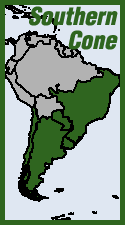 Uruguay’s lower house July 31 approved a bill to legalize cannabis, by a vote of 50 to 46. The bill now goes to the Senate, where lawmakers have assured President José Mujica they have a majority to approve it. Mujica's administration introduced the bill, and his signature is not in doubt. Laura Blanco, president of Uruguay's Cannabis Studies Association said the bill sent an "encouraging" sign to other Latin American nations. Under the law, citizens will be allowed to cultivate cannabis in their homes, limited to six plants per household. They would also be permitted to form cooperatives allowed to grow 99 plants. In addition, private companies can produce under the bill, their harvests to be bought by the government for resale to licensed pharmacies. To buy in pharmacies, citizens must submit their names into a confidential federal registry, and are limited to buying 40 grams per month. In a move to prevent cannabis tourism, the legislation restricts legal purchases to Uruguayans.
Uruguay’s lower house July 31 approved a bill to legalize cannabis, by a vote of 50 to 46. The bill now goes to the Senate, where lawmakers have assured President José Mujica they have a majority to approve it. Mujica's administration introduced the bill, and his signature is not in doubt. Laura Blanco, president of Uruguay's Cannabis Studies Association said the bill sent an "encouraging" sign to other Latin American nations. Under the law, citizens will be allowed to cultivate cannabis in their homes, limited to six plants per household. They would also be permitted to form cooperatives allowed to grow 99 plants. In addition, private companies can produce under the bill, their harvests to be bought by the government for resale to licensed pharmacies. To buy in pharmacies, citizens must submit their names into a confidential federal registry, and are limited to buying 40 grams per month. In a move to prevent cannabis tourism, the legislation restricts legal purchases to Uruguayans.

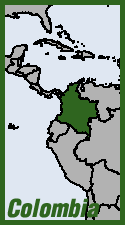 Colombia’s National Police announced the seizure of three tons of marijuana in the southwest of the country on July 28. Units of the traffic and transport police discovered the packets of herb in a truck that was stopped at a checkpoint on a road between the towns of Villarrica and Candelaria, respectively in the departments of Cauca and Valle del Cauca. The bust took place on the same route where police this year have carried out operations resulting in major seizures. When inspecting the vehicle the police discovered 47 packages of plastic fiber, all containing marijuana with a total weight of three tons.
Colombia’s National Police announced the seizure of three tons of marijuana in the southwest of the country on July 28. Units of the traffic and transport police discovered the packets of herb in a truck that was stopped at a checkpoint on a road between the towns of Villarrica and Candelaria, respectively in the departments of Cauca and Valle del Cauca. The bust took place on the same route where police this year have carried out operations resulting in major seizures. When inspecting the vehicle the police discovered 47 packages of plastic fiber, all containing marijuana with a total weight of three tons.
 Over the past generation, an informal alliance of activists, cultivators, entrepreneurs and medical professionals has struggled to redefine how the United States views the cannabis plant. Victories at state and municipal levels have created a new field of medicinal treatment for a wide variety of ailments in California and other mostly western states. Medical marijuana marks the starkest point in the divide between an industrial model of healthcare and a millennia-long tradition of herbal self-treatment—because nowhere else has the federal government been so intransigent.
Over the past generation, an informal alliance of activists, cultivators, entrepreneurs and medical professionals has struggled to redefine how the United States views the cannabis plant. Victories at state and municipal levels have created a new field of medicinal treatment for a wide variety of ailments in California and other mostly western states. Medical marijuana marks the starkest point in the divide between an industrial model of healthcare and a millennia-long tradition of herbal self-treatment—because nowhere else has the federal government been so intransigent. Last week, both houses of the New Hampshire legislature voted overwhelmingly to approve a bill permitting doctors to prescribe medical marijuana to many patients with chronic or terminal illnesses. Gov. Maggie Hassan (D-NH) said she would sign the bill. The New Hampshire bill is somewhat less permissive than medical marijuana laws in many other states, with compromise language that denies patients the right to grow cannabis at home, or to use it for post-traumatic stress disorder. The bill also includes restrictions aimed at ensuring that patients do not engage in "doctor shopping" in order to obtain a cannabis prescription. Doctors may only prescribe to those who have been their patients for at least 90 days, and who have already tried other treatments. (
Last week, both houses of the New Hampshire legislature voted overwhelmingly to approve a bill permitting doctors to prescribe medical marijuana to many patients with chronic or terminal illnesses. Gov. Maggie Hassan (D-NH) said she would sign the bill. The New Hampshire bill is somewhat less permissive than medical marijuana laws in many other states, with compromise language that denies patients the right to grow cannabis at home, or to use it for post-traumatic stress disorder. The bill also includes restrictions aimed at ensuring that patients do not engage in "doctor shopping" in order to obtain a cannabis prescription. Doctors may only prescribe to those who have been their patients for at least 90 days, and who have already tried other treatments. (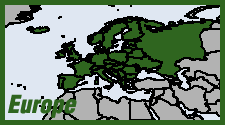 Dutch prosecutors are seeking up to one-month suspended prison terms for owners and staff of cannabis cafes in Maastricht for selling pot to foreigners in defiance of the new law. But meanwhile the Netherlands government was ordered to pay damages to owners of cannabis cafes after a court in The Hague said new measures turning the coffee-houses into members-only clubs were too harsh. The amount the state must pay is still to be determined. (
Dutch prosecutors are seeking up to one-month suspended prison terms for owners and staff of cannabis cafes in Maastricht for selling pot to foreigners in defiance of the new law. But meanwhile the Netherlands government was ordered to pay damages to owners of cannabis cafes after a court in The Hague said new measures turning the coffee-houses into members-only clubs were too harsh. The amount the state must pay is still to be determined. (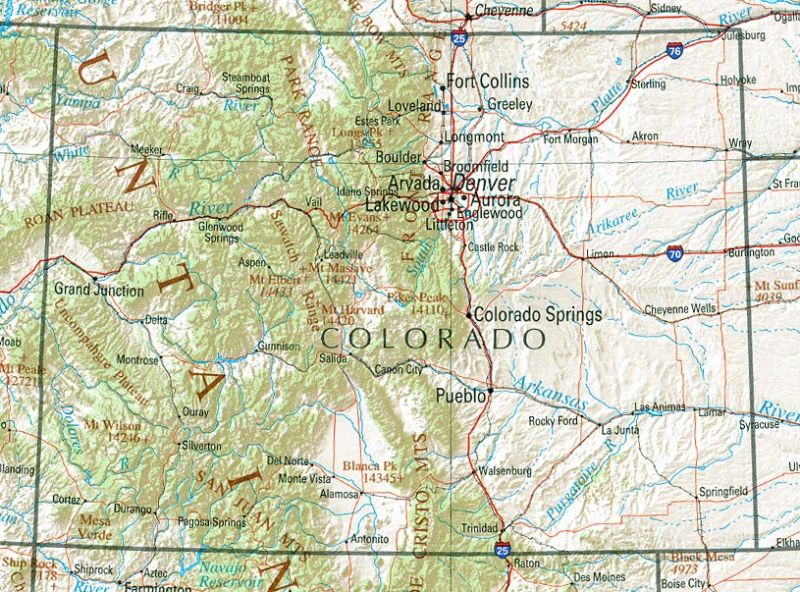 US District Judge Richard Matsch in Denver on June 11 struck down a Colorado law that would have required businesses to place cannabis-related magazines behind counters. Matsch ordered a permanent injunction against Amendment 64 which would have treated cannabis-related magazines as pornographic material. The ruling comes a week after publishers and bookstores filed a
US District Judge Richard Matsch in Denver on June 11 struck down a Colorado law that would have required businesses to place cannabis-related magazines behind counters. Matsch ordered a permanent injunction against Amendment 64 which would have treated cannabis-related magazines as pornographic material. The ruling comes a week after publishers and bookstores filed a 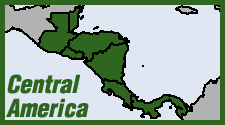 More than 160 civil society organizations representing hundreds of thousands of citizens in Mexico, Central America and the United States, sent an open letter to the
More than 160 civil society organizations representing hundreds of thousands of citizens in Mexico, Central America and the United States, sent an open letter to the 





Recent comments
6 days 16 hours ago
6 days 23 hours ago
4 weeks 16 hours ago
4 weeks 6 days ago
9 weeks 6 hours ago
12 weeks 5 days ago
16 weeks 5 days ago
17 weeks 4 days ago
27 weeks 4 days ago
31 weeks 4 days ago